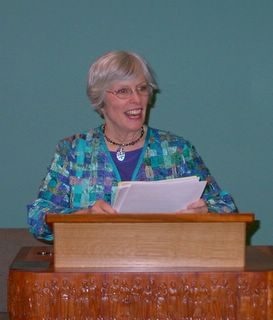From an Austin church pew.
Since I'm not a Christian, it's been a long time since I've opened a Christian hymnal, but there in the slot in the pew before me was the "New Century Hymnal." Ho boy. Our Unitarian hymnal is all about love and respect for all living things (doves flutter, rainbows bloom, rivers flow, swords become plowshares, etc.) so I was unprepared for the militancy in the lyrics.
- "Christ Jesus cannot fail to rule both earth and heaven."
- "Attend the savior's sovereign claim."
- "God's realm shall stretch from shore to shore."
Interesting to see this hymnal bear witness to one of the main points in Sam Harris's book, The End of Faith, which I started on the flight to Austin. In bold and articulate terms Harris declares that religious faith is turning out to be mankind's most deadly creation and that it is high time we looked it in the eye and called it what it is: irrational, dominionist, and often hateful. The tolerance of religious liberals and moderates only perpetuates the problem, he says, because we refuse to examine faith in a doctrine the way we would ANY other claim of authority.
Harris acknowledges that the issues religion addresses are of the utmost importance: what is the purpose of life? what is our connection to that which is greater than our small self? How can we bear the suffering of this life? How can we bear knowing that we will die and so will everyone we know and love? But he suggests that doctrinal faith does not further our quest for transcendent answers -- it impedes this important exploration. And we end up dissing (at best) or killing (at worst) each other in order to reassure ourselves that we are right.
This is a pathetically simplistic summary of a very complex argument. Harris is no kook; he's highly respected, even among some Christian theologians. As one of those "tolerant" liberal religionists, he sure has me thinking.


0 Comments:
Post a Comment
<< Home